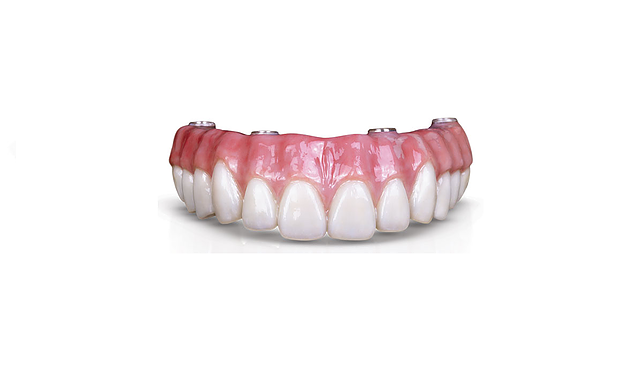Things about Dental Sense
Things about Dental Sense
Blog Article
How Dental Sense can Save You Time, Stress, and Money.
Table of ContentsThe 3-Minute Rule for Dental SenseFacts About Dental Sense RevealedThe 3-Minute Rule for Dental SenseHow Dental Sense can Save You Time, Stress, and Money.
are clinical gadgets operatively implanted right into the jaw to recover a person's ability to chew or their appearance. They provide assistance for fabricated (fake) teeth, such as crowns, bridges, or dentures. When a tooth is shed due to injury or disease, a person can experience complications such as rapid bone loss, faulty speech, or changes to eating patterns that result in discomfort.Dental dental implant systems consist of an oral implant body and oral implant joint and might additionally consist of an abutment fixation screw. Professional teeth whitening. The dental implant body is surgically placed in the jawbone instead of the tooth's origin. The oral implant joint is generally attached to the implant body by the joint fixation screw and expands through periodontals right into the mouth to sustain the affixed fabricated teeth
(https://dentalsense.godaddysites.com/f/transform-your-smile)Framework of The Oral Implant System choosing dental implants, speak with your dental provider about the potential benefits and dangers, and whether you are a prospect for the treatment. Things to think about: Your general health is an essential factor in determining whether you are a good candidate for dental implants, just how long it will certainly require to heal, and the length of time the dental implant may remain in location.
Smoking may influence the healing procedure and lower the long-term success of the dental implant. The healing process for the dental implant body may take several months or longer, during which time you normally have a short-lived joint in place of the tooth. the oral implant procedure: Very carefully follow the dental health directions provided to you by your dental copyright.
About Dental Sense
Implant failure can cause the demand for another medical procedure to repair or replace the dental implant system. Brings back the capacity to chew Recovers aesthetic look Aids keep the jawbone from shrinking as a result of bone loss Preserves the health and wellness of the surrounding bone and gums Assists keep nearby (neighboring) teeth stable Boosts lifestyle Damages to bordering natural teeth throughout implant placement Injury to the surrounding tissues throughout surgery, such as sinus perforation Injury throughout surgery (for instance, crack of surrounding jawbone) Insufficient feature, such as feeling like the teeth do not attack with each other typically A feeling that the tooth hangs or twisting in position resulting from an abutment screw loosening up Implant body failure (looseness of the dental implant body) because of systemic infection, which may be much more likely in people with uncontrolled diabetes mellitus as a result of local infection in bone and periodontals supporting the dental implant body due to delayed healing, which might be much more likely in individuals who smoke Trouble cleansing the gum tissues around the implant, leading to bad oral health Unattended gum disease Post-surgical tingling due to nerve impingement or damages Always inform healthcare companies and imaging technicians that you have dental implants prior to any kind of magnetic resonance imaging (MRI) or x-ray procedures.
FDA is not mindful of any unfavorable events reported for MRI or x-ray Your Domain Name procedures with oral implants. Dental implants systems are usually made of products that adhere to worldwide agreement requirements of the International Company for Standardization (ISO) or ASTM International. These criteria have details of what makes a safe product.

An oral implant is a framework that changes a missing out on tooth. With screw-like tools, the specialist inserts an implant into the jawbone, and it acts as a support for a fabricated tooth, called a crown.
Examine This Report about Dental Sense
Some people are not qualified for oral implant surgical treatment. It is for oral specialists to operate people with: severe illnessuncontrollable metabolic diseasebone or soft cells disease or infectionIf these issues are settled, an individual can have the surgery. In, oral doctors abstain from operating individuals with: If individuals with any of the above go through oral implant surgical treatment, there is a higher threat of the implant failing.

Dental implant surgical treatment is a customized process. It's not the same for every person. The complying with gives a basic overview of what you can expect your dentist, oral specialist, periodontist or prosthodontist to do: Place the implant surgically. Give you time to recover. Affix the message and last crown, bridge or denture.
Next, your surgeon will thoroughly position the dental implant right into your jaw. Ultimately, your surgeon will rearrange your gums and shut the laceration with stitches. If your dental implant is near the front of your mouth, your dental professional will certainly make a momentary tooth for you to use up until you heal. By doing this, you won't have a void in your smile while you recover.
How Dental Sense can Save You Time, Stress, and Money.
Your provider can inform you what to expect in your scenario. During the healing phase, your jawbone must fuse to the oral implant. This procedure, called osseointegration, is vital for stability and long-term success. This process can take anywhere from three to 9 months. In some cases, it may take longer.
When your implant heals, your dental expert can affix the abutment (small adapter article) and your last reconstruction (crown, bridge or denture). This generally takes concerning one hour to finish and may need a 2nd minor surgical treatment. You should not feel any kind of discomfort throughout your oral implant treatment because your provider will certainly make use of medication to numb your gum tissues.
Report this page